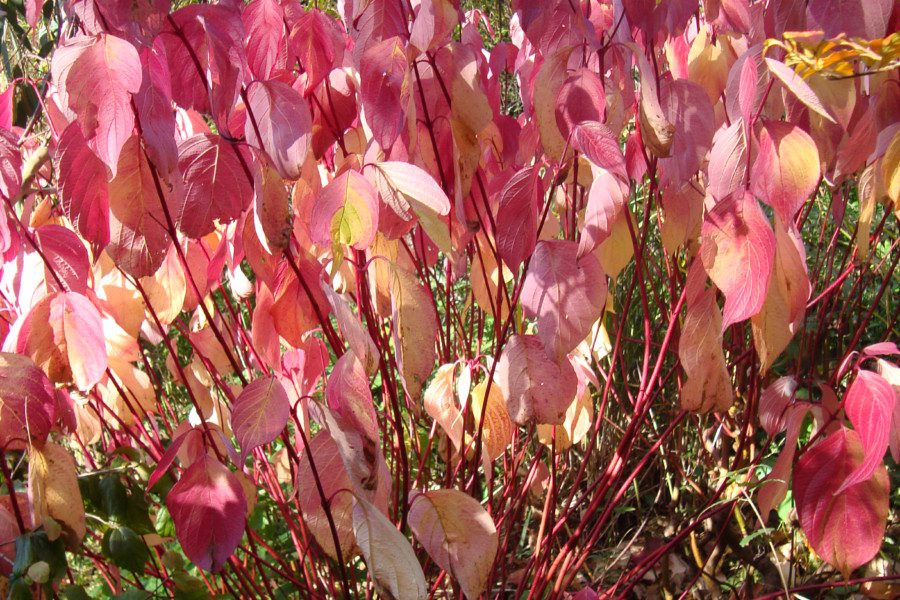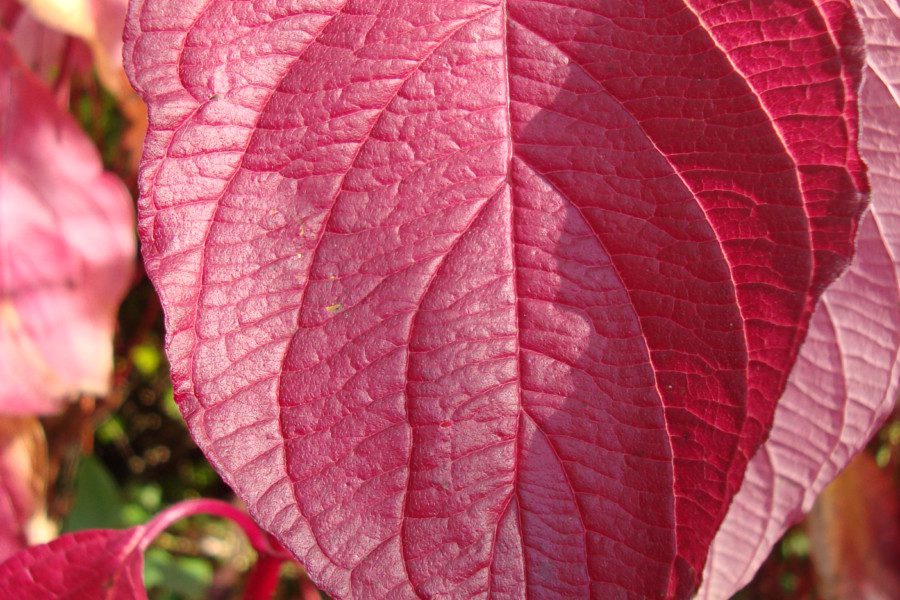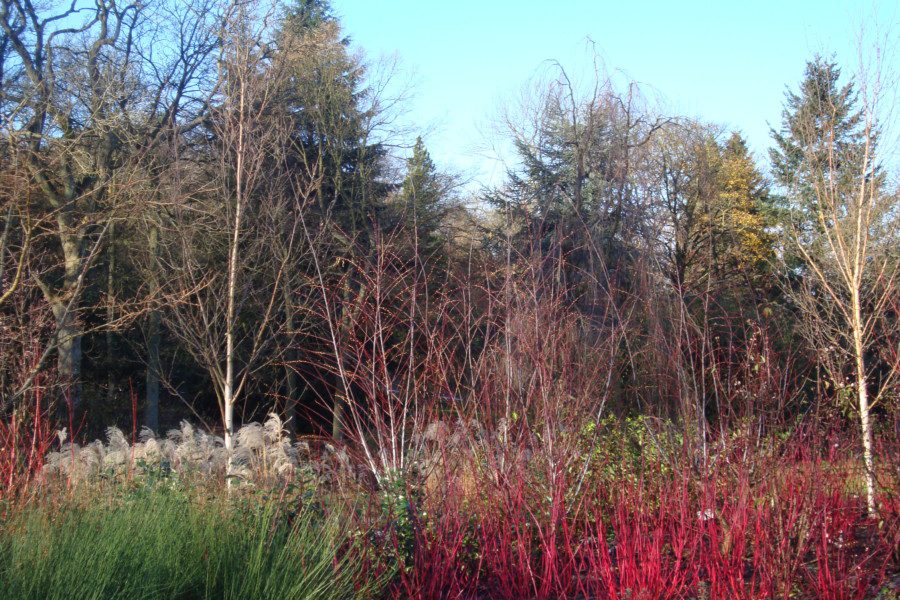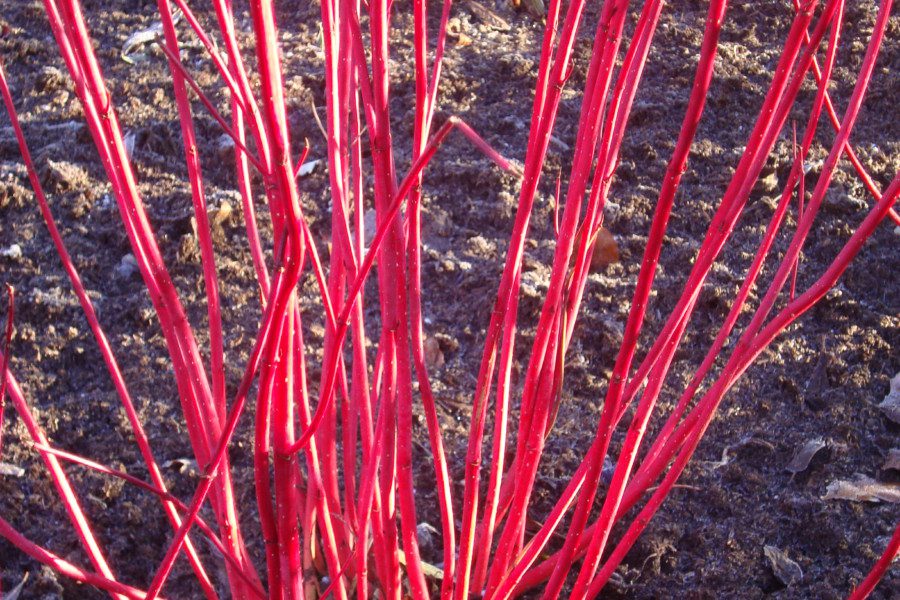Cornus ‘Westonbirt’, Cornus sibirica ‘Westonbirt’
Cornus alba ‘Siberica’ is a medium (height 1.5-2.5m x spread 1.5-2.5m) deciduous shrub with a suckering habit. Left unpruned it can become a dense thicket. In gardens it is usually regularly coppiced to encourage the new stems that are bright crimson throughout the winter. The ovate leaves turn red-purple in the autumn, especially in sunnier aspects. Flowers are small and cream coloured, held in terminal clusters, whilst these are of limited ornamental value they are followed by bluish-white berries. The cultivar ‘Siberian Pearls’ is a particularly free-fruiting selection.
Cornus alba selections are valuable additions for winter interest providing colour from October to March.



